Description
ABSTRACT
The Achilles’ Heel of Whistleblowing in the Nigerian Banking Industry
Dr. Fola Adeyemo*
Whistleblowing can be a highly instrumental tool in curtailing corruption in the banking industry. However, the act of whistleblowing is not a common practice in Nigeria. This may be attributed to the absence of a robust statutory framework that is able to provide protection in the event that a whistleblower’s identity is exposed. The absence of this framework also raises difficulty in promoting good corporate governance practices. Whistleblowing remains an important concept in banking and financial services industry. This paper explores the concept and how this tool can be used to curb corruption and other bad practices in the Nigerian banking industry. The paper analyses the current legal structure on whistleblowing in Nigeria, its effectiveness, limitations, and need for enhancement. The analysis is against the background of the more extensive provisions in the US and the UK and examines what lessons Nigeria may learn from the two countries.
Keywords: Whistleblowing, Protection, Nigerian Banking, Legal Framework.
INTRODUCTION
The act of Whistleblowing can be described as the disclosure of the behaviour of a company, or those who are placed in a position of responsibility, that is illegal, immoral or could be categorised as a serious wrongdoing.2 There are several characteristics required to qualify the act of “disclosed information”. First, there is the intentional disclosure of information. Secondly, the person disclosing this information would normally be within close proximity to the employer. While usually, the whistleblower is a current or former employee, there are several exceptions to this. It is possible that the whistleblower witnessed the information sought to be disclosed whilst not within close “working” proximity. Thus, the whistleblower could potentially be a stakeholder that has an interest in the organisation itself. Third, the information sought to be disclosed needs pertain to the company/organisation in question. Finally, the disclosure needs to be in the public or private interest.
Whistleblowing, it would appear, is encouraged more in developing countries. Taking the UK for example, it is an act which is encouraged across the board in many industries.3 The Prudential Regulatory Authority, (“PRA”)4 similar to the Central Bank of Nigeria (“CBN”), encourages firms to implement internal procedures, which allow for concerned persons to “blow the whistle”.
* LL.B (Hons) (Westminster), BL, LL.M (Brunel), Ph.D. (Brunel). Lecturer, Kingston University, UK.
- An earlier version of this paper was published in the Journal of International Banking Law and Regulation, Sweet & Maxwell, 2016.
- Marek Arszulowicz and Wojciech Gasparski, Whistleblowing: In Defence of Proper Action (Business & Economics Transaction Publishers 2011) 174.
- The act of whistleblowing is encouraged across many industries such as health and safety services, care for the elderly, environmental to mention a few. The UK Government lists classes of people who are protected and provide assistance for those who wish to whistleblow. Accessed 2 November 2016.
- The Financial Services Act 2012 established by the Prudential Regulatory Authority. The aim is to ensure the promotion of safety and soundness and to facilitate healthy competition.

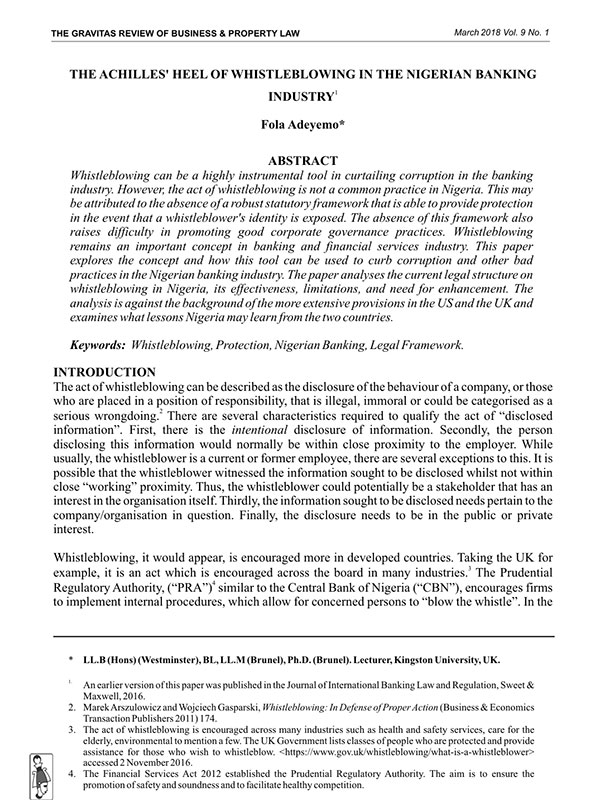
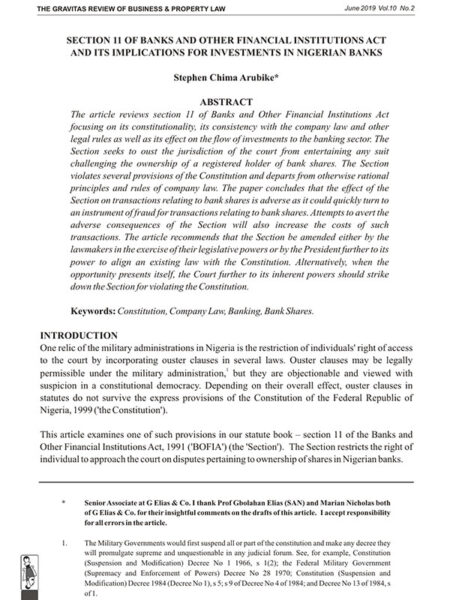
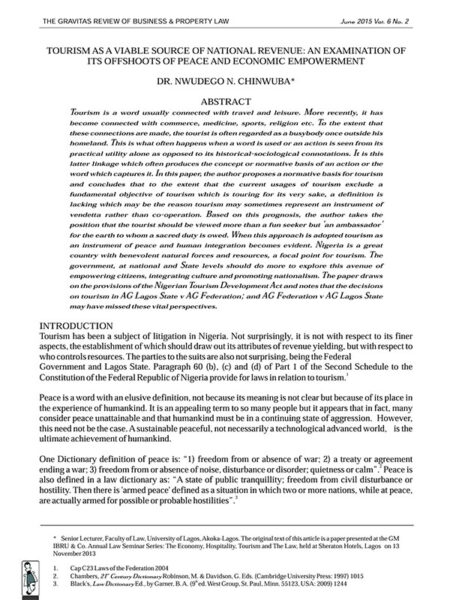
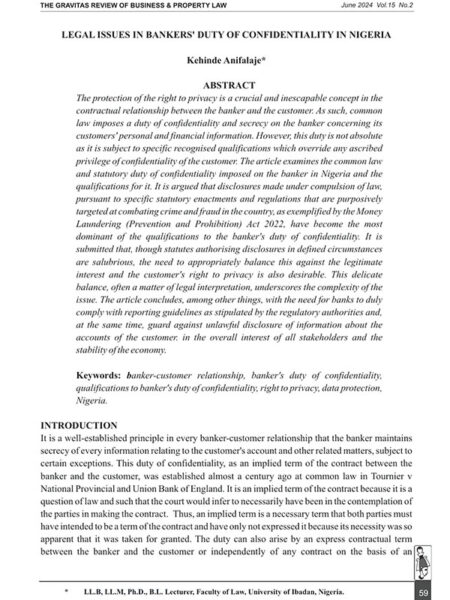
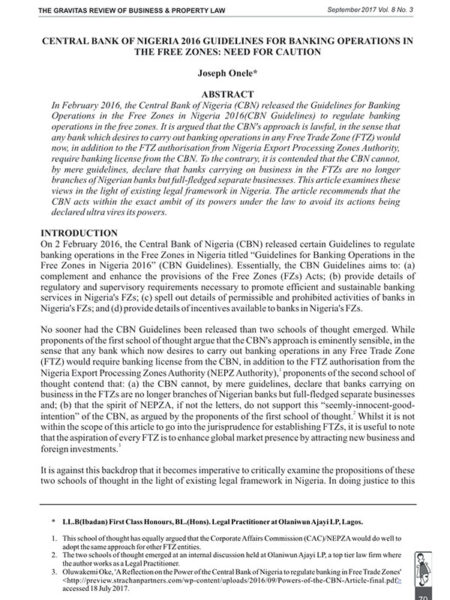


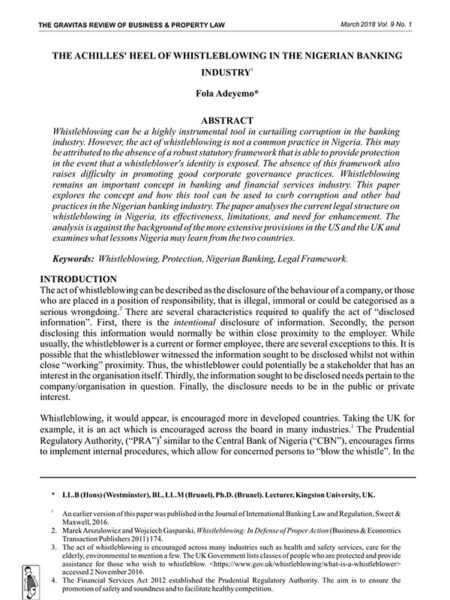
Reviews
There are no reviews yet.